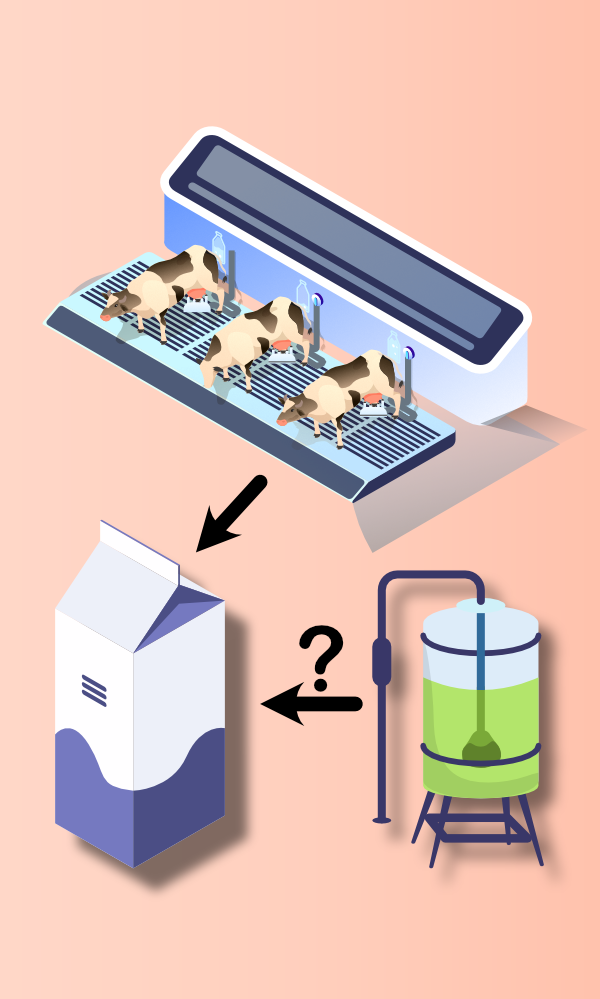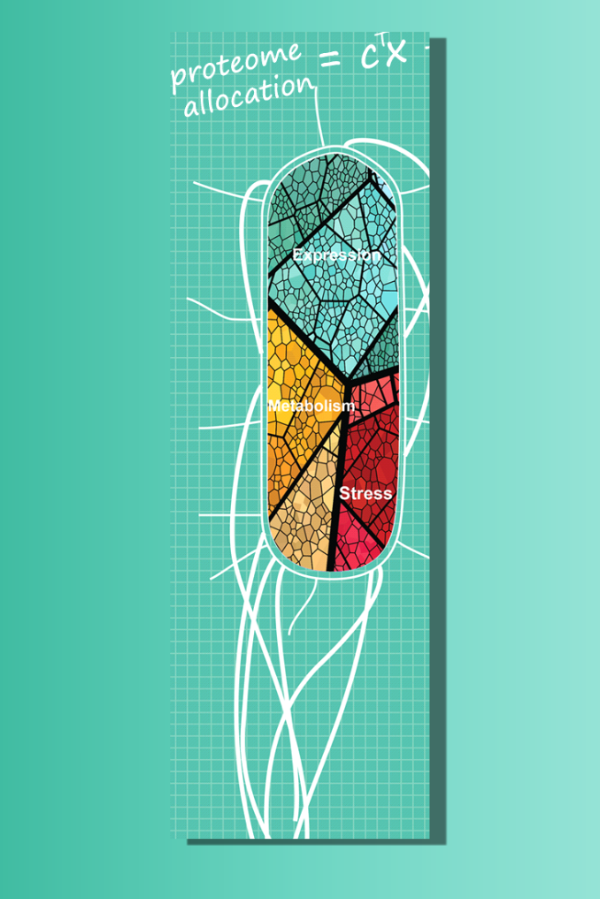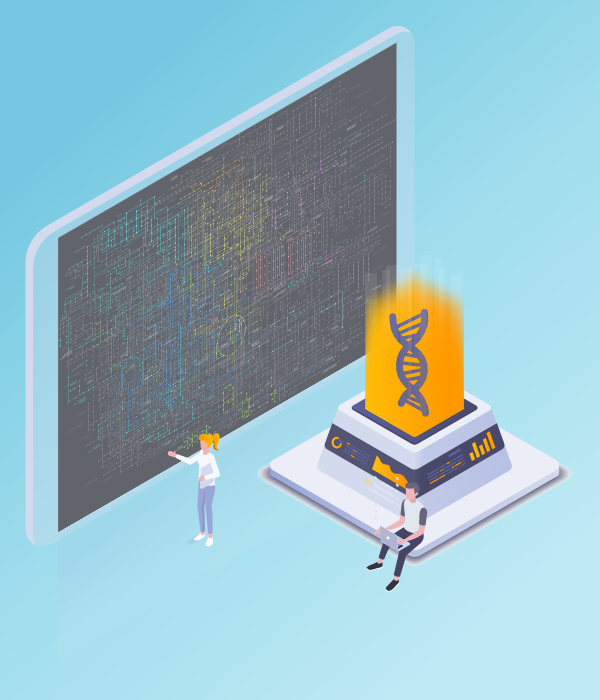Who we are
We are Queen's Computational Systems Biology: an interdisciplinary and fast-moving academic research lab at Queen's University.
We see systems everywhere:
proteins, cells, bioreactors, to industry value chains.
We're continuously inventing modeling solutions,
readily blending predictive modeling,
mathematical optimization, and machine learning
to solve real-world problems.
We thrive on collaborations with industry, municipalities,
and academic partners.
Research
- All
- Health
- Sustainability
Our Team
Alumni
- Hao Xu: Research Assistant → PhD student at UCSD
- Nalsen Yang: Software Developer and Research Assistant → SDE at Amazon
- Stefan Damjanovic: NSERC USRA Research Intern
- Parsa Abdi: Undergraduate Thesis Student → MD Candidate at Memorial University
- Caleb Olukayode: Undergraduate Thesis Student → Production Lead at Mars
- Hari Sundar Pyda: Mitacs Globalink Intern
- Mohammed Adil Ibrahim: Mitacs Globalink Intern
- Ej Jun Lung: Undergraduate thesis Student → MASc Student
Publications
Complete publication list on Google Scholar†: corresponding author(s); bold: lab members
2025
| count | citation |
|---|---|
| 58 | A Bains, S Dahal, B Manna, M Lyte, L Yang, N Singhal (2025) L-norepinephrine induces community shift, oxidative stress response, metabolic reprogramming, and virulence potential in wastewater microbiomes. Water Research 287: 124353 |
| 57 | AMY Yaish, Q Zhang, L Yang, PJ McLellan (2025) Hybrid Recycling of Polyvinyl Chloride and Polyethylene Terephthalate: A Life Cycle and Technoeconomic Assessment. ACS Sustainable Chem. Eng. 13:29 |
2024
| count | citation |
|---|---|
| 56 | J Zhao, K Chen, BO Palsson, L Yang (2024) StressME: unified computing framework of Escherichia coli metabolism, gene expression, and stress responses. PLOS Computational Biology 20(2): e1011865. https://doi.org/10.1371/journal.pcbi.1011865 |
| 55 | J Zhao, M Zarabadi, D Hall, S Dahal, J Greener, L Yang (2024) Unification of cell-scale metabolic activity with biofilm behavior by integration of advanced flow and reactive-transport modeling and microfluidic experiments. bioRxiv, https://doi.org/10.1101/2024.01.25.577134 |
2023
| count | citation |
|---|---|
| 54 | Haoyang Yao, Laurence Yang (2023) PROSO Toolbox: a unified protein-constrained genome-scale modelling framework for strain designing and optimization. arXiv:2308.14869 |
| 53 | Sanjeev Dahal, Alina Renz, Andreas Draeger, Laurence Yang (2023) Genome-scale model of Pseudomonas aeruginosa metabolism unveils virulence and drug potentiation. Communications Biology 6, 165. https://doi.org/10.1038/s42003-023-04540-8 |
| 52 | Joon Young Park, Sang-Mok Lee, Ali Ebrahim, Zoe K Scott-Nevros, Jaehyung Kim, Laurence Yang, Anand Sastry, Sang Woo Seo, Bernhard O Palsson, Donghyuk Kim (2023) Model-driven experimental design workflow expands understanding of regulatory role of Nac in Escherichia coli. NAR Genomics and Bioinformatics 5:lqad006 |
| 51 | Haoyang Yao, Sanjeev Dahal, Laurence Yang (2023). Novel context-specific genome-scale modelling explores the potential of triacylglycerol production by Chlamydomonas reinhardtii. Microbial Cell Factories 22, 13. https://doi.org/10.1186/s12934-022-02004-y |
2022
| count | citation |
|---|---|
| 50 | Hao Xu, S Sang, P Bai, R Li, L Yang, H Lu (2022). GripNet: Graph Information Propagation on Supergraph for Heterogeneous Graphs. Pattern Recognition, https://doi.org/10.1016/j.patcog.2022.108973 |
| 49 | Christine Vogel, Gábor Balázsi, Alexander Löwer, Caifu Jiang, Amy K. Schmid, Morten Sommer, Laurence Yang, Christian Münch, Andrew Wang, Kavita Israni-Winger, Timo Mühlhaus, David L. Des Marais, Henrik Oster, Merav Socolovsky (2022). What differentiates a stress response from responsiveness in general? Cell Systems 13:P195-200 |
| 48 | Jonathan Smith, Hao Xu, Xinran Li, Laurence Yang, Jahir Gutierrez (2021). Compound Screening with Deep Learning for Neglected Diseases: Leishmaniasis. PMLR 165:47-57 | bioRxiv |
2021
| count | citation |
|---|---|
| 47 | H Xu, S Sang, H Yao, AI Herghelegiu, H Lu, L Yang (2021). APRILE: Exploring the Molecular Mechanisms of Drug Side Effects with Explainable Graph Neural Networks. bioRxiv, doi:https://doi.org/10.1101/2021.07.02.450937 |
| 46 | CJ Lloyd, J Monk, L Yang, A Ebrahim, BO Palsson (2021). Computation of condition-dependent proteome allocation reveals variability in the macro and micro nutrient requirements for growth. PLOS Comput Biol, https://doi.org/10.1371/journal.pcbi.1007817 |
| 45 | J Zhao, H Xu, L Yang (2021) A dynamic metabolic map for diabetes. Nature Computational Science, 1:309-310. View article: SharedIt link |
| 44 | S Dahal, J Zhao, L Yang (2021) Recent advances in genome-scale modeling of proteome allocation. Current Opinion in Systems Biology, doi:10.1016/j.coisb.2021.04.002 |
| 43 | S Dahal, L Yang (2021) Genome-scale modeling of Pseudomonas aeruginosa PA14 unveils its broad metabolic capabilities and role of metabolism in drug potentiation. bioRxiv https://doi.org/10.1101/2021.04.15.439930 |
| 42 | A Anand, CA Olson, AV Sastry, A Patel, R Szubin, L Yang, AM Feist, BO Palsson (2021) Restoration of fitness lost due to dysregulation of the pyruvate dehydrogenase complex is triggered by ribosomal binding site modification. Cell Reports 35:108961 |
| 41 | S Dahal, J Zhao, L Yang (2021). Genome-scale Modeling of Metabolism and Macromolecular Expression and Their Applications. Biotechnology and Bioprocess Engineering, https://doi.org/10.1007/s12257-020-0061-2. View article: SharedIt link |
2020
| count | citation |
|---|---|
| 40 | H Xu, S Sang, P Bai, L Yang, H Lu (2020). GripNet: Graph Information Propagation on supergraph for heterogeneous graphs. arXiv, arXiv:2010.15914 |
| 39 | S Dahal, JT Yurkovich, H Xu, BO Palsson, L Yang† (2020). Synthesizing Systems Biology Knowledge from Omics Using Genome‐Scale Models. Proteomics, https://doi.org/10.1002/pmic.201900282 |
| 38 | ES Kavvas, L Yang, JM Monk, D Heckmann, BO Palsson (2020). A biochemically-interpretable machine learning classifier for microbial GWAS. Nature Communications 11:2580 |
| 37 | N Mih, JM Monk, X Fang, E Catoiu, D Heckmann, L Yang, BO Palsson (2020). Adaptations of Escherichia coli strains to oxidative stress are reflected in properties of their structural proteomes. BMC Bioinformatics 21:162 |
| 36 | LF Buchweitz, JT Yurkovich, C Blessing, V Kohler, F Schwarzkopf, ZA King, L Yang, F Jóhannsson, ÓE Sigurjónsson, Ó Rolfsson, J Heinrich, A Dräger (2020). Visualizing metabolic network dynamics through time-series metabolomic data. BMC Bioinformatics, 21:130 |
| 35 | Y Seif, KS Choudhary, Y Hefner, A Anand, L Yang, BO Palsson (2020). Metabolic and genetic basis for auxotrophies in Gram-negative species. Proc Natl Acad Sci USA, doi:10.1073/pnas.1910499117 |
2019
| count | citation |
|---|---|
| 34 | B Du, L Yang, CJ Lloyd, X Fang, BO Palsson (2019). Genome-scale model of metabolism and gene expression provides a multi-scale description of acid stress responses in Escherichia coli. PLOS Computational Biology, doi:10.1371/journal.pcbi.1007525 |
| 33 | AV Sastry, Y Gao, R Szubin, Y Hefner, S Xu, D Kim, KS Choudhary, L Yang, ZA King, BO Palsson (2019). The Escherichia coli transcriptome mostly consists of independently regulated modules. Nature Communications 10:5536 |
| 32 | CJ Lloyd, N Mih, L Yang, BO Palsson (2019). Fundamentals of Metabolic Systems Biology. In: Schmidt, Thomas M. (ed.) Encyclopedia of Microbiology, 4th Edition. vol. 2, pp. 315-325. UK: Elsevier |
| 31 | A Anand, K Chen, L Yang, AV Sastry, CA Olson, S Poudel, Y Seif, Y Hefner, PV Phaneuf, S Xu, R Szubin, AM Feist, BO Palsson (2019). Adaptive evolution reveals a tradeoff between growth rate and oxidative stress during naphthoquinone-based aerobic respiration. Proc Natl Acad Sci USA, doi:10.1073/pnas.1909987116 |
| 30 | A Anand, K Chen, E Catoiu, AV Sastry, CA Olson, TE Sandberg, Y Seif, S Xu, R Szubin, L Yang, AM Feist, BO Palsson (2019). OxyR is a convergent target for mutations acquired during adaptation to oxidative stress-prone metabolic states. Molecular Biology and Evolution, doi:10.1093/molbev/msz251 |
| 29 | JT Yurkovich, L Yang, BO Palsson (2019). Systems-level physiology of the human red blood cell is computed from metabolic and macromolecular mechanisms. bioRxiv, doi:10.1101/797258 |
| 28 | L Yang†, N Mih, A Anand, JH Park, J Tan, JT Yurkovich, JM Monk, CJ Lloyd, TE Sandberg, SW Seo, D Kim, AV Sastry, P Phaneuf, Y Gao, JT Broddrick, K Chen, D Heckmann, R Szubin, Y Hefner, AM Feist, BO Palsson† (2019). Cellular responses to reactive oxygen species are predicted from molecular mechanisms. Proc Natl Acad Sci USA, doi:10.1073/pnas.1905039116 |
| 27 | L Yang†, MA Saunders, JC Lachance, BO Palsson, J Bento† (2019). Estimating Cellular Goals from High-Dimensional Biological Data. In The 25th ACM SIGKDD Conference on Knowledge Discovery and Data Mining pp. 2202-2211 | arXiv :1807.04245 |
| 26 | L Yang†, A Ebrahim, CJ Lloyd, MA Saunders, BO Palsson (2019). DynamicME: dynamic simulation and refinement of integrated models of metabolism and protein expression. BMC Systems Biology 13 (1), 2 |
| 25 | JC Lachance, CJ Lloyd, JM Monk, L Yang, AV Sastry, Y Seif, BO Palsson, S Rodrigue, AM Feist, ZA King, P Jacques (2019). BOFdat: Generating biomass objective functions for genome-scale metabolic models from experimental data. PLoS Computational Biology 15 (4), e1006971 |
| 24 | A Anand, CA Olson, L Yang, AV Sastry, E Catoiu, KS Choudhary, PV Phaneuf, TE Sandberg, S Xu, Y Hefner, R Szubin, AM Feist, BO Palsson (2019). Pseudogene repair driven by selection pressure applied in experimental evolution. Nature Microbiology 4 (3), 386 |
2018
| count | citation |
|---|---|
| 23 | CJ Lloyd, A Ebrahim, L Yang, ZA King, E Catoiu, EJ O’Brien, JK Liu, BO Palsson (2018). COBRAme: A computational framework for genome-scale models of metabolism and gene expression. PLoS Computational Biology 14 (7), e1006302 |
| 22 | Y Gao, JT Yurkovich, SW Seo, I Kabimoldayev, A Dräger, K Chen, AV Sastry, X Fang, N Mih, L Yang, J Eichner, BK Cho, D Kim, BO Palsson (2018). Systematic discovery of uncharacterized transcription factors in Escherichia coli K-12 MG1655. Nucleic Acids Research 46 (20), 10682-10696 |
| 21 | ES Kavvas, E Catoiu, N Mih, JT Yurkovich, Y Seif, N Dillon, D Heckmann, A Anand, L Yang, V Nizet, JM Monk, BO Palsson (2018). Machine learning and structural analysis of Mycobacterium tuberculosis pan-genome identifies genetic signatures of antibiotic resistance. Nature Communications 9 (1), 4306 |
| 20 | L Yang†, JT Yurkovich, ZA King, BO Palsson (2018). Modeling the multi-scale mechanisms of macromolecular resource allocation. Current Opinion in Microbiology 45, 8-15 |
| 19 | I Kabimoldayev, AD Nguyen, L Yang, S Park, EY Lee, D Kim (2018). Basics of genome-scale metabolic modeling and applications on C1-utilization. FEMS Microbiology Letters 365 (20), fny241 |
2017
| count | citation |
|---|---|
| 18 | X Fang, A Sastry, N Mih, D Kim, J Tan, JT Yurkovich, CJ Lloyd, Y Gao, L Yang†, BO Palsson† (2017). Global transcriptional regulatory network for Escherichia coli robustly connects gene expression to transcription factor activities. Proc Natl Acad Sci USA 114 (38), 10286-10291 |
| 17 | D Ma, L Yang, RMT Fleming, I Thiele, BO Palsson, MA Saunders (2017). Reliable and efficient solution of genome-scale models of Metabolism and macromolecular Expression. Scientific Reports 7, 40863 |
| 16 | JT Yurkovich, L Yang, BO Palsson (2017). Utilizing biomarkers to forecast quantitative metabolite concentration profiles in human red blood cells. IEEE Conference on Control Technology and Applications doi:10.1109/CCTA.2017.8062584 |
| 15 | JT Yurkovich, DC Zielinski, L Yang, G Paglia, O Rolfsson, OE Sigurjonsson, JT Broddrick, A Bordbar, K Wichuk, S Brynjolfsson, S Palsson, S Gudmundsson, BO Palsson (2017). Quantitative time-course metabolomics in human red blood cells reveal the temperature dependence of human metabolic networks. Journal of Biological Chemistry 292 (48), 19556-19564 |
| 14 | K Chen, Y Gao, N Mih, EJ O’Brien, L Yang, BO Palsson (2017). Thermosensitivity of growth is determined by chaperone-mediated proteome reallocation. Proc Natl Acad Sci USA 114 (43), 11548-11553 |
| 13 | JT Yurkovich, L Yang, BO Palsson (2017). Biomarkers are used to predict quantitative metabolite concentration profiles in human red blood cells. PLoS Computational Biology 13 (3), e1005424 |
2016
| count | citation |
|---|---|
| 12 | E Brunk, KW George, J Alonso-Gutierrez, M Thompson, E Baidoo, G Wang, CJ Petzold, D McCloskey, J Monk, L Yang, EJ O'Brien, TS Batth, HG Martin, A Feist, PD Adams, JD Keasling, BO Palsson, TS Lee (2016). Characterizing Strain Variation in Engineered E. coli Using a Multi-Omics-Based Workflow. Cell Systems 2 (5), 335-346 |
| 11 | L Yang, D Ma, A Ebrahim, CJ Lloyd, MA Saunders, BO Palsson (2016). solveME: fast and reliable solution of nonlinear ME models. BMC Bioinformatics 17 (1), 391 |
| 10 | L Yang, JT Yurkovich, CJ Lloyd, A Ebrahim, MA Saunders, BO Palsson (2016). Principles of proteome allocation are revealed using proteomic data and genome-scale models. Scientific Reports 6, 36734 |
2015
| count | citation |
|---|---|
| 9 | L Yang, J Tan, EJ O’Brien, JM Monk, D Kim, HJ Li, P Charusanti, ... (2015). Systems biology definition of the core proteome of metabolism and expression is consistent with high-throughput data. Proc Natl Acad Sci USA 112 (34), 10810-10815 |
| 8 | L Yang, S Srinivasan, R Mahadevan, WR Cluett (2015). Characterizing metabolic pathway diversification in the context of perturbation size. Metabolic Engineering 28, 114-122 |
2013
| count | citation |
|---|---|
| 7 | K Zhuang, L Yang, WR Cluett, R Mahadevan (2013). Dynamic strain scanning optimization: an efficient strain design strategy for balanced yield, titer, and productivity. DySScO strategy for strain design. BMC Biotechnology 13 (1), 8 |
| 6 | P Gawand, L Yang, WR Cluett, R Mahadevan (2013). Metabolic model refinement using phenotypic microarray data. Systems Metabolic Engineering 47-59 |
2011
| count | citation |
|---|---|
| 5 | L Yang, WR Cluett, R Mahadevan (2011). EMILiO: a fast algorithm for genome-scale strain design. Metabolic Engineering 13 (3), 272-281 |
2010
| count | citation |
|---|---|
| 4 | S Garg, L Yang, R Mahadevan (2010). Thermodynamic analysis of regulation in metabolic networks using constraint-based modeling. BMC Research Notes 3 (1), 125 |
| 3 | L Yang, R Mahadevan, WR Cluett (2010). Designing experiments from noisy metabolomics data to refine constraint-based models. Proceedings of the 2010 American Control Conference, 5143-5148 |
| 2 | L Yang, WR Cluett, R Mahadevan (2010). Rapid design of system-wide metabolic network modifications using iterative linear programming. IFAC Proceedings Volumes 43 (5), 391-396 |
2008
| count | citation |
|---|---|
| 1 | L Yang, R Mahadevan, WR Cluett (2008). A bilevel optimization algorithm to identify enzymatic capacity constraints in metabolic networks. Computers & Chemical Engineering 32 (9), 2072-2085 |
News

@biosyscompute
Our Funders
- Fueling Innovation -



















